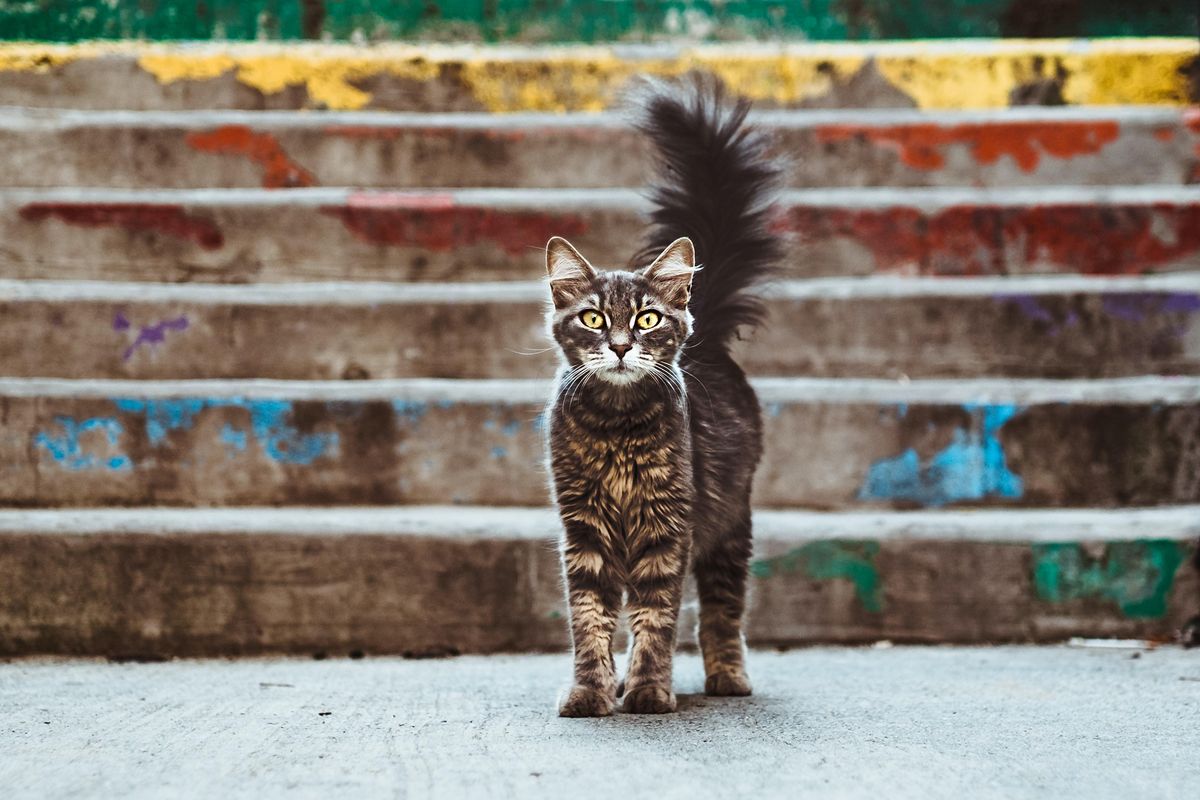
It’s an age-old debate between cat parents—letting their feline roam outdoors versus adopting a strict indoor-only policy. Usually in cases like this, when there are two polarizing opinions, the truth lies somewhere in the middle, with pros and cons belonging to both sides.
This is not one of those times. Team Indoor is the winner here, hands down. And there’s new science to prove it.
The study, published in the journal Frontiers in Ecology and Evolution, revealed that allowing cats to free-roam is bad on multiple levels, putting themselves, their owners and even the environment at risk.
For the study, researchers recorded the comings and goings of free-roaming cats using 60 motion-activated wildlife cameras across 1500 different locations in Washington, D.C. Over the span of three years, the D.C. Cat Count Survey’s findings revealed an overwhelming amount of reasons to opt for the great indoors instead.
For one thing, free-roaming cats are exponentially more exposed to dangerous diseases.

“We discovered that the average domestic cat in D.C. has a 61% probability of being found in the same space as racoons – America’s most prolific rabies vector – 61% spatial overlap with red foxes, and 56% overlap with Virginia opossums, both of which can also spread rabies,” said Daniel Herrera, lead author of the study and Ph.D. student in the University of Maryland’s Department of Environmental Science and Technology (ENST).
Herrera’s conclusion was straightforward: “By letting our cats outside we are significantly jeopardizing their health.”
Free-roaming didn’t only put cats at risk of infection—they often wander to high-exposure areas of rabies or toxoplasmosis, both of which can be transmitted to their owners.
Diseases aside, free-roaming cats pose a threat to wildlife.

Herrera explained that while most people might assume cats help balance the food chain by hunting invasive species like rats, they frequently shared spaces and preyed on small native wildlife, including grey squirrels, chipmunks, cottontail rabbits, groundhogs and white-footed mice.
“Cats are keeping rats out of sight due to fear, but there really isn’t any evidence that they are controlling the non-native rodent population. The real concern is that they are decimating native populations that provide benefits to the D.C. ecosystem,” said Herrera. Though this study only took place in one city, it feels pretty safe to assume that its findings are fairly universal.
It’s only natural to want to give our pets the best life possible. And while the thought of letting Whiskers out on an adventure might seem like a way to honor his primal side, Herrera and his fellow researchers strongly encourage keeping him safely indoors.
Luckily, there are other ways to let a cat express their natural instincts. As cat expert and influencer Jackson Galaxy advocates, consider 10-15 minutes of play a necessity, the same way you’d consider walking a dog as something that comes along with the job. Playing is a great way to not only keep your feline friend happy and healthy, it’s an adorable bonding meowment.

Ultimately, the choice on whether or not to allow a cat to roam free is up to the owner. But with great companions comes great responsibility. And all pet parents should at least be aware of the risks that come along with their decisions.
